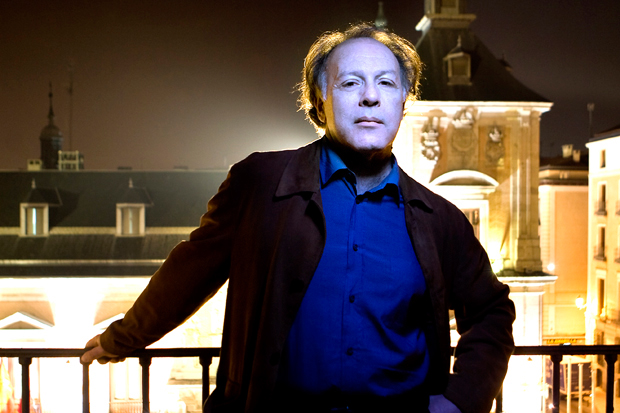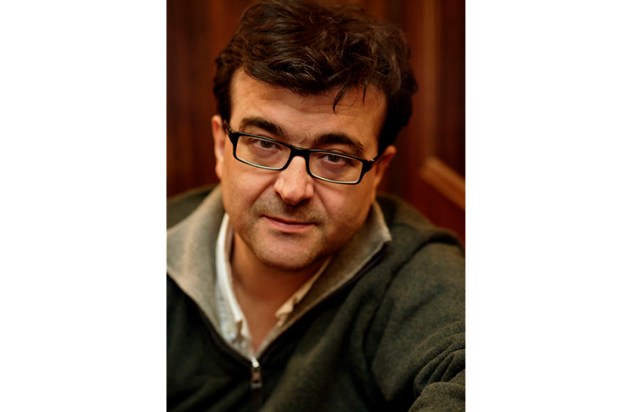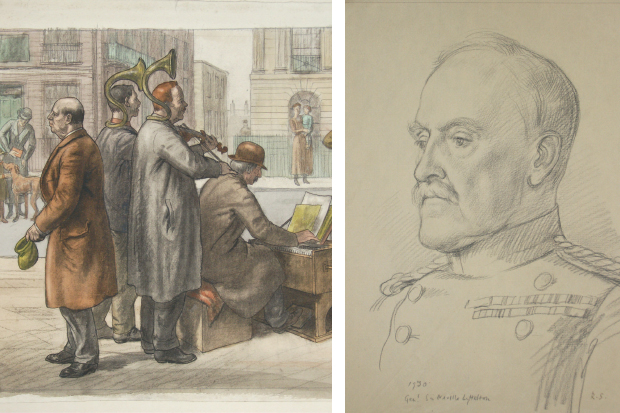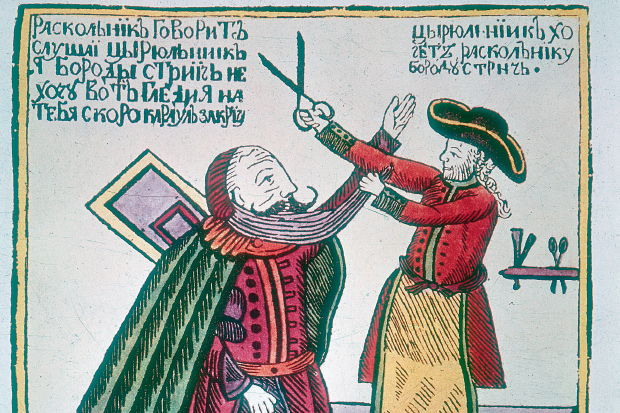The title comes from Hamlet but the spirit that hovers over the pages of Javier Marías’s new novel is — as ever — that of Proust. The visiting and revisiting of the past; the dwelling on the minutiae of memory; the attention to social hierarchy, the demands of lust and the force of cruelty — not to mention the labyrinthine sentences weighted with subordinate clauses… Marcel would breathe easily here.
Trying to encapsulate a novel by Marías in a few lines is as frustrating as attempting to ‘explain’ Velázquez’s ‘Las Meninas’ in one sentence. Both are minutely detailed — but what are we seeing? What are we being told? On one level Thus Bad Begins shows us an innocent young man being drawn into a cat’s cradle of marital warfare, betrayal, truth and lies. But it’s also a middle-aged man looking back at his young self with the 20/20 vision of hindsight.
Marías, Spain’s most celebrated novelist, generally considered Nobel laureate-in-
waiting, is best known for his dazzling 1,600-page trilogy Your Face Tomorrow, exploring his favoured themes of treachery, political chicanery, metaphysics and, by no means least, sex. His previous book, The Infatuations, was a philosophical meditation masquerading as a murder mystery.
The new novel is set in post-Franco Madrid, where long-buried resentments (and bodies) can surface, the storyline drifting between the present and various pasts. The narrator, Juan de Vere, recalls the experience that profoundly changed him and his destiny, when he took a job with the once famous but now fading film director Eduardo Muriel. Elegant, with black eye-patch and fine tailoring, frequently described as brilliant, Muriel has, we gradually realise, directed some pretty schlocky stuff.
Marías himself is a film buff and the story is freighted with screen references, often to drily comic effect. Real-life figures are invoked, predominantly the English producer Harry Alan Towers — a notorious chancer who specialised in low-end action, horror and even soft porn, but somehow succeeded in employing Orson Welles, Michael Caine, Jack Pallance and Klaus Kinski. Herbert Lom (remember him in The Ladykillers?) appears, playing himself, in one chapter.
Muriel is a high-definition networker, strapped for cash but managing to cling on to friends in high places. His verbally abused wife seems grief-stricken, the children sidelined. Drawn into this shadowy, seductive group, Juan begins to lose his ability to distinguish right from wrong, cruelty from natural justice. He spies on his employer’s wife, then on friends, does a Peeping Tom, furtively witnessing sexual assignations, and uncovers what his employer describes vaguely as ‘vile deeds’.
We’re observing the erosion of innocence, the uselessness of revenge and — familiar to Marías readers — the impossibility of ever knowing each other. But this is also a picture of life in Madrid, with the dictatorship swept away and divorce about to be legalised along with other freedoms; traditional mores clashing with sexy modern lifestyle. Catholicism and carnality, betrayal and enduring love co-exist, but sooner or later the civil war will cast its long shadow over them all. Marías’s philosopher father was himself a victim of the Franco regime.
Like all his novels, Thus Bad Begins benefits from Margaret Jull Costa’s superlative translation: she captures the stately, cyclical style, a rhythm that becomes hypnotic. If the book lacks the ferocious wit of the trilogy and the brilliant complexity of the early novels, there’s a slow-building sense of Hitchcock in Vertigo mode that keeps us engaged as Juan peels back the layers that conceal a tragic core. Marías is always fascinated by the pull of evil and the dubious dance it leads the well-intentioned. By the end, our narrator has become both voyeur and participant, no longer the milk-white soul he was.
Got something to add? Join the discussion and comment below.
Get 10 issues for just $10
Subscribe to The Spectator Australia today for the next 10 magazine issues, plus full online access, for just $10.
Available from the Spectator Bookshop, £18.99 Tel: 08430 600033. Lee Langley’s novels include Changes of Address, A House in Pondicherry and Distant Music.
You might disagree with half of it, but you’ll enjoy reading all of it. Try your first month for free, then just $2 a week for the remainder of your first year.














Comments
Don't miss out
Join the conversation with other Spectator Australia readers. Subscribe to leave a comment.
SUBSCRIBEAlready a subscriber? Log in